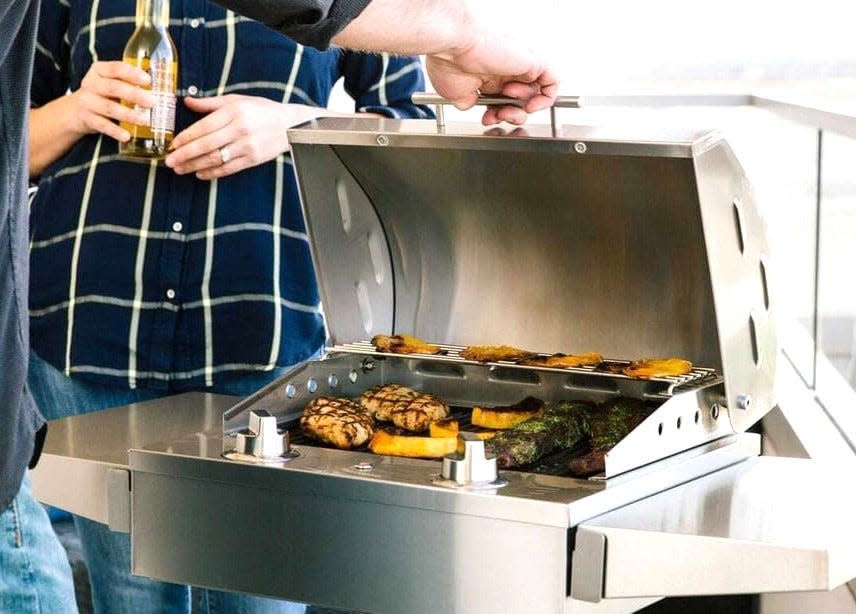Don’t bring campylobacter to your cookout
Summer temperatures and an uninvited guest are making some areas residents sick with food poisoning with outdoor picnics, cookouts and parties, according to the Branch-Hillsdale-St. Joseph Community Health Agency.
Environmental Health Services Director Paul Andriacchi reports an increase in positive cases of campylobacter illness.

That bacterium is typically found in undercooked or improperly handled raw meat.
“With warmer temperatures and the summer grilling and meat smoking season, residents are encouraged to practice safe cooking techniques,” Andriacchi recommends.
People who contract campylobacter typically have diarrhea, fever and stomach cramps. You can also experience nausea and vomiting.
The symptoms usually start two to three days after eating the contaminated food. They may last about one week. Your healthcare provider can provide diagnosis and treatment.
To protect from food poisoning, the Centers for Disease Control recommends four simple steps to avoid infection – clean, separate, cook and chill.
Other safe handling recommendations include:
While shopping, pick up your meat, poultry and seafood just before heading to check out, and keep them separate from other food items in your shopping cart.
At checkout, put each in their individual plastic bags and grocery bags.
Once at home, store the meat in a way that does not allow juices to leak onto other items in your refrigerator. Keep your refrigerator at 40°F or lower and your freezer at 0°F or below.
Wash your hands with soap and water before and after handling raw meat, poultry and seafood.
Clean your work surfaces, counters, cutting boards and utensils with hot soapy water before and after cooking.
Keep meat, poultry and seafood refrigerated until the grill or smoker is ready to go.
In preparing meats:
Thaw food in the refrigerator, cold water or microwave. If you are taking the raw meat camping or to a family event, keep it in an insulated cooler at 40°F or lower.
Never thaw or marinate by setting it out on the counter.
When marinating, do so in the refrigerator. Do not reuse marinades or put different types of meat in the same marinade bag. Throw away any marinade that has had raw meat in it.
Clean counter surfaces, cutting boards and utensils in between using them for other meat, poultry or seafood.
When you grill, smoke or cook meat, use a thermometer.
Keep the smoker temp at 225°F-300°F.
When grilling, smoking or cooking meat, internal temperatures should read:
145°F—whole cuts of beef, pork, lamb and veal (then allow the meat to rest for 3 minutes before carving or eating)
145°F—fish (or cook until the flesh is opaque and separates easily with a fork)
160°F—hamburgers and other ground beef
165°F—all poultry and pre-cooked meats, like hot dogs
165°F—leftovers and casseroles
Do not place cooked meat back on the plate that held the raw meat.
After cooking, keep food hot at 140°F or warmer until it’s served.
Refrigerate leftovers within two hours of cooking, one hour if the temperature outside is over 90°F.
This article originally appeared on Coldwater Daily Reporter: Health agency reports increase in food poisoning cases

